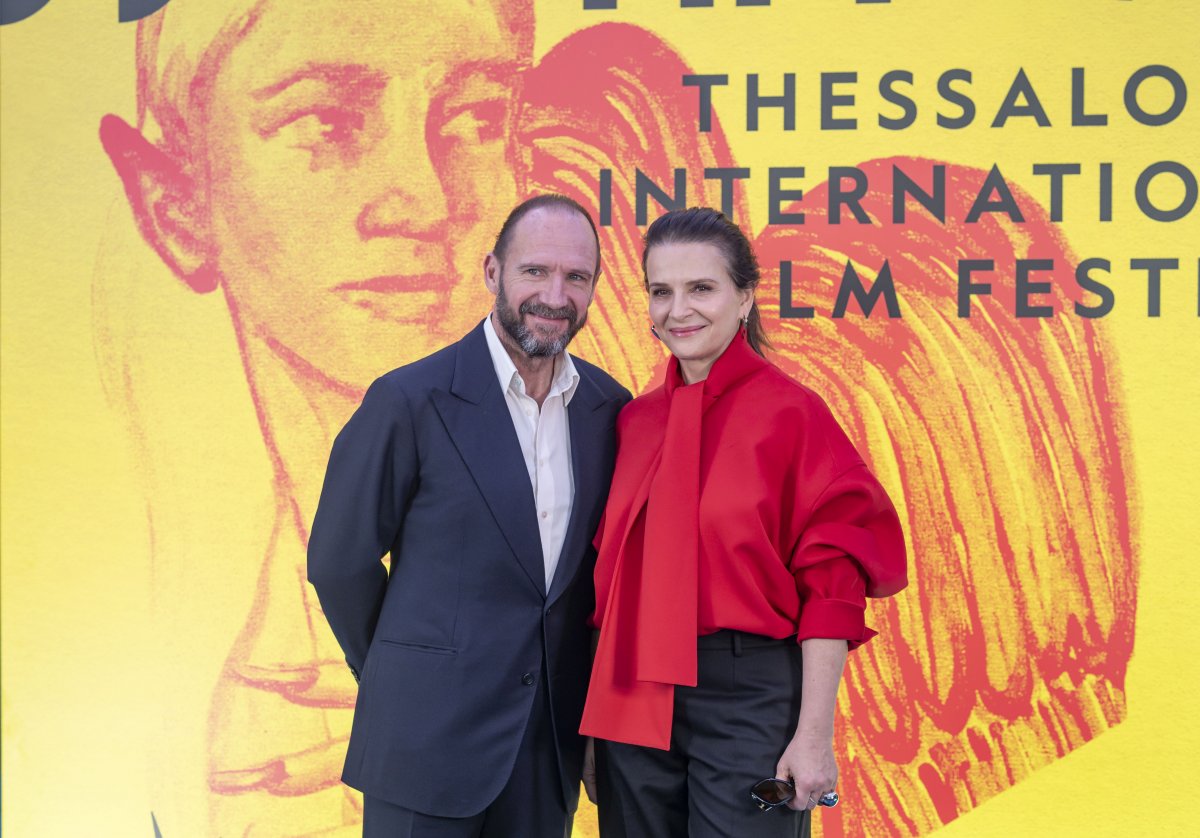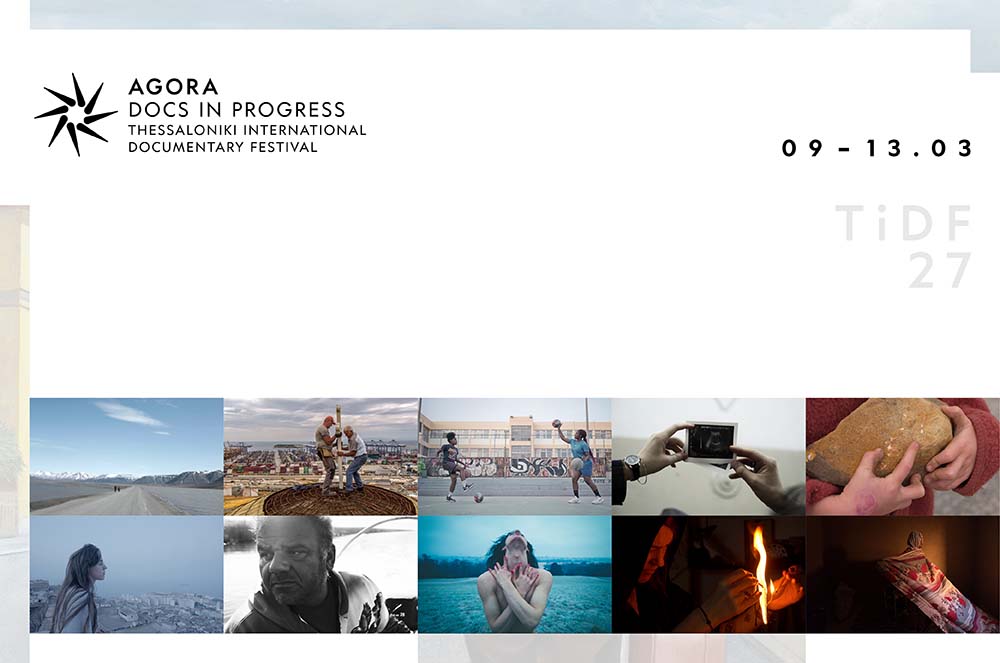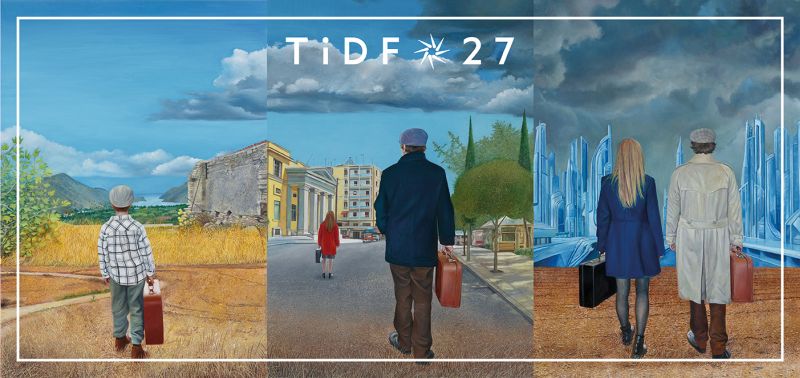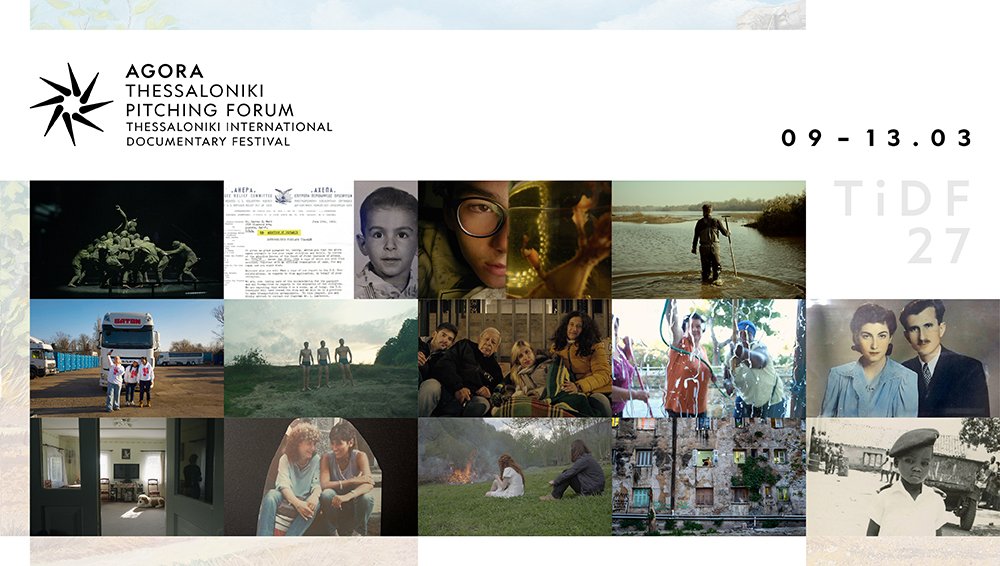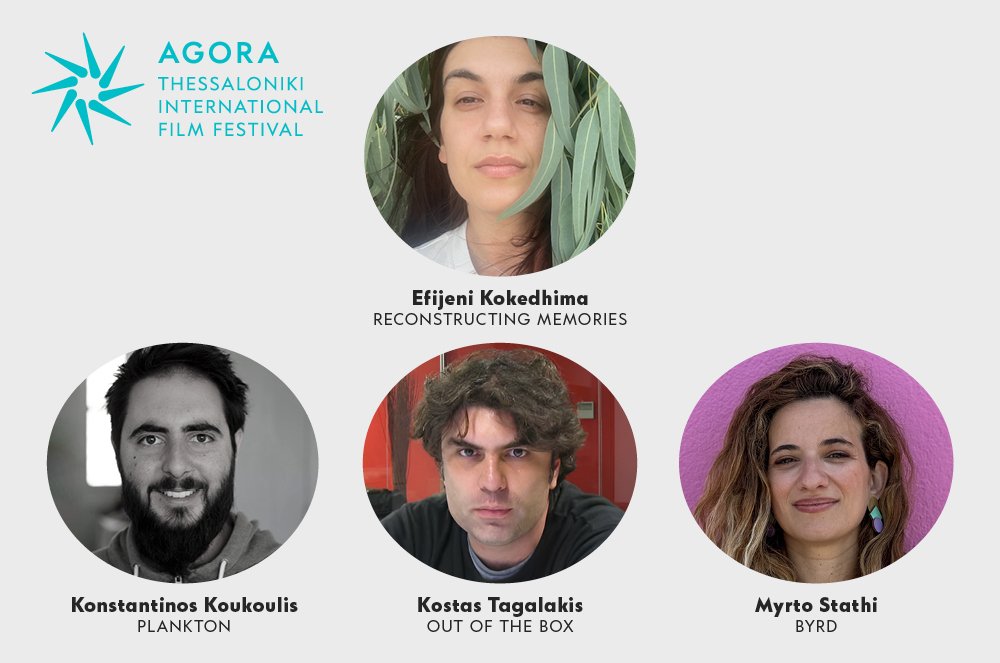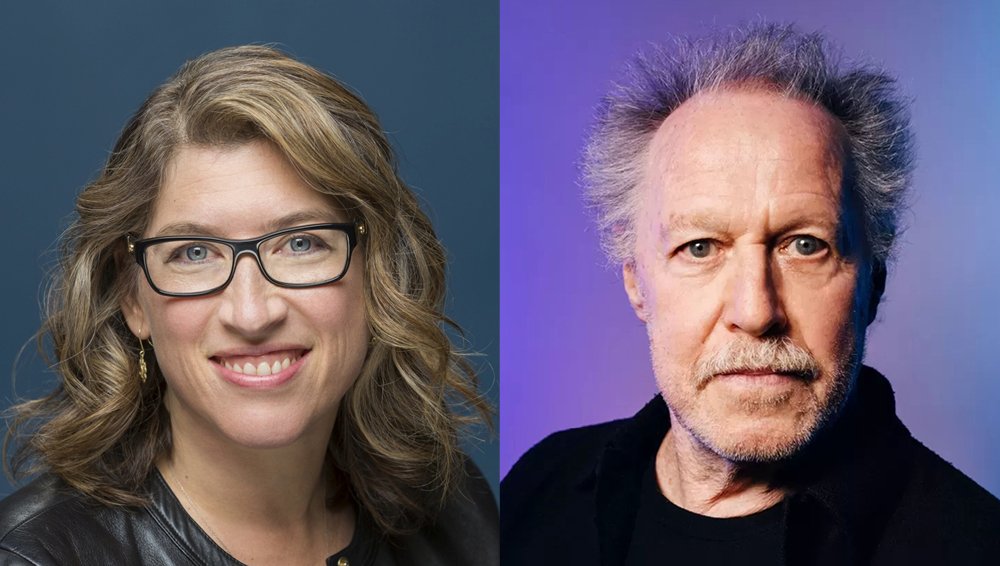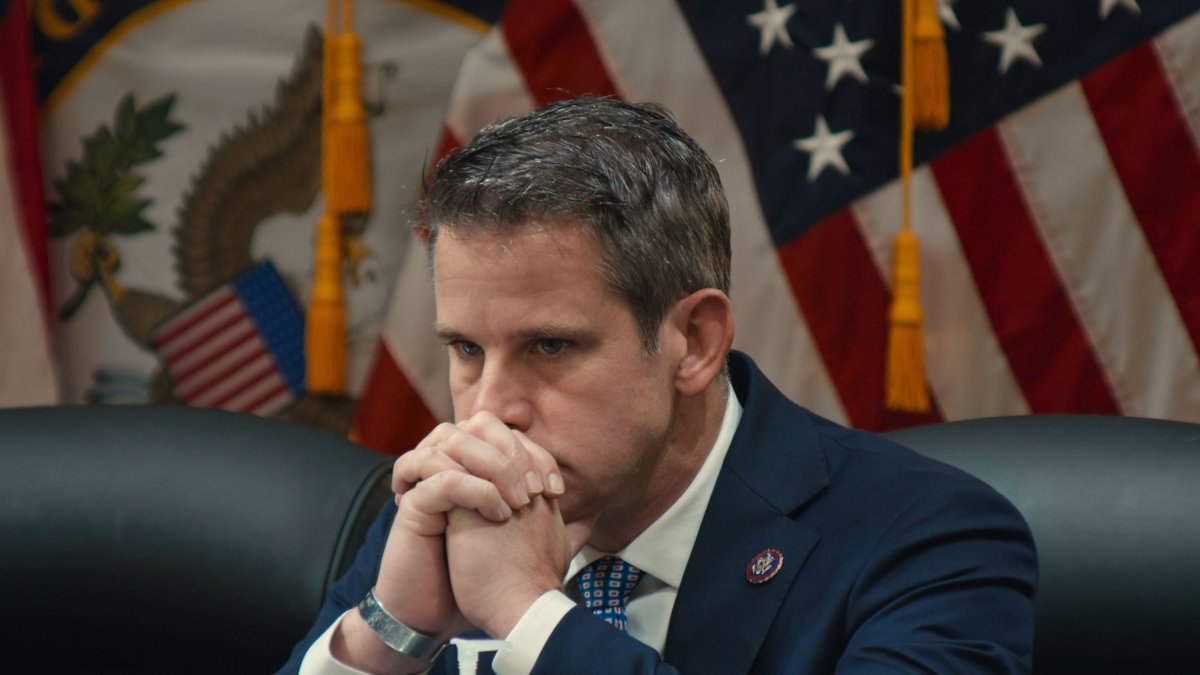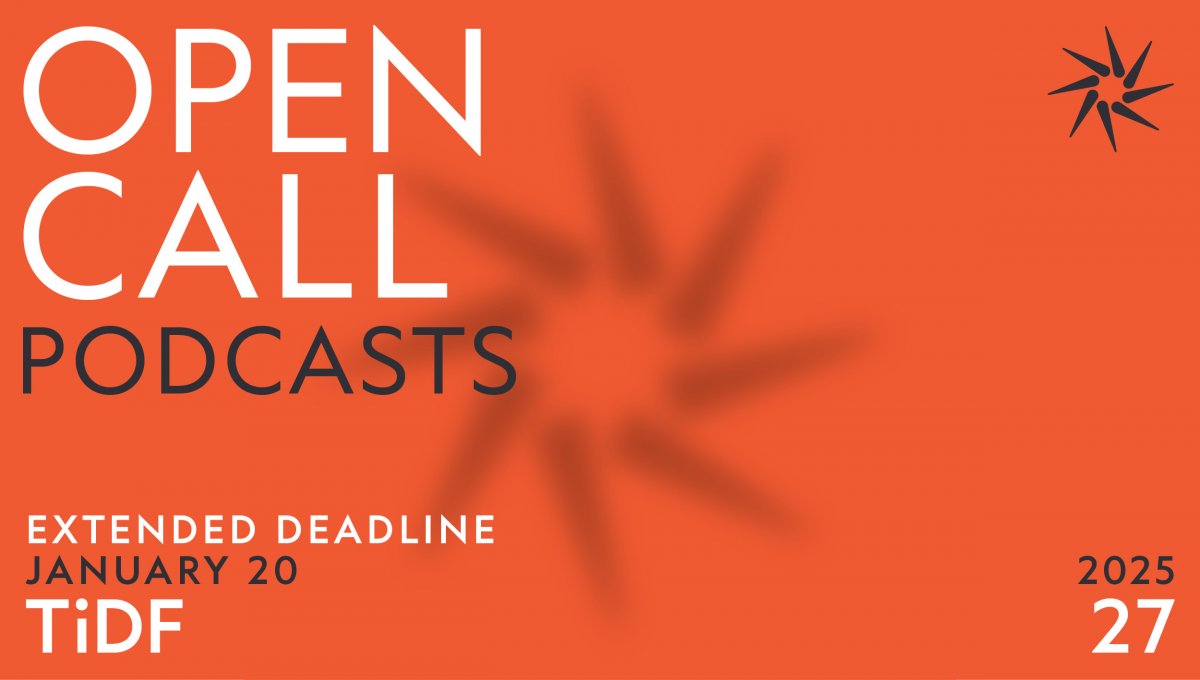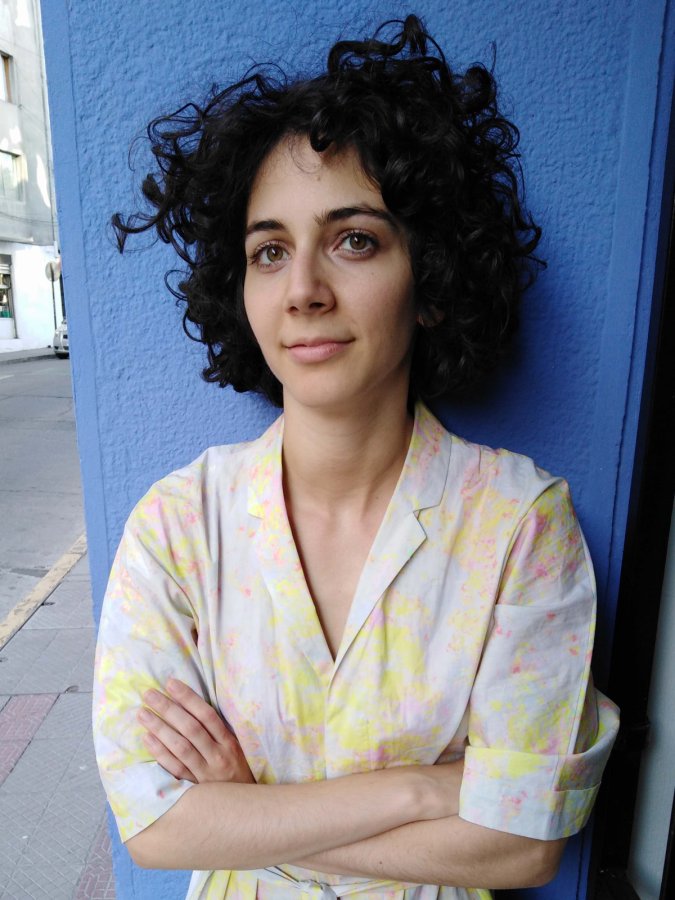Within the framework of the 65th Thessaloniki Film Festival, a press conference with Juliette Binoche and Ralph Fiennes took place on November 2nd, at the Stavros Tornes theater, on the occasion of the screening of their latest film The Return, an innovative film adaptation of the last rhapsody from Homer's Odyssey. The panel also featured the film’s director, Uberto Pasolini, as well as its co-producer, Konstantinos Kontovrakis. Yorgos Krassakopoulos, the Festival’s head of programming served as the moderator of the discussion.
Yorgos Krassakopoulos welcomed both the panel and the audience, stressing how important a film such as The Return is for the Greek audience, as it is universally acknowledged that the Homeric Epics are so intricately intertwined with the Greek collective psyche. The first question posed was addressed to the director, Uberto Pasolini, with regard to the adventurous process of completing the film.
“I have been thinking about this film for thirty years. That is to say, ten years longer than it took Odysseus to battle in Troy, to embark on his return, to engage in love affairs with the Mediterranean’s most beautiful women, to kill 108 suitors, at least according to Homer, and at last, end up within Penelope’s arms. In our film we had to murder far fewer men, I’d like for that to be noted," Uberto Pasolini humorously said. Immediately afterwards, he added that being primarily a producer, it was inevitable to approach the film mainly from that angle: “The script was coming to fruition and, in the course of time, it was changing, until Ralph and Juliette decided to accompany me on this journey. It has been from the start the story of a family reunion. Most of all, it is an odyssey of the mind and spirit, not a literal journey. This is the real inner struggle of Odysseus, and as the script evolved, more emphasis was placed on the inner conflicts and problems of the family. We focused more on the people rather than the myths,” Uberto Pasolini clarified.
Next, Ralph Fiennes and Juliette Binoche shared their own initial thoughts concerning the project. “Uberto has been a longstanding friend and partner of mine,” Ralph Fiennes stated. “His vision was clear and, through experimentation and discussions, it reached complete maturity about three years ago. When we were approached with the proposal, Juliette and I were both in Georgia, USA, and more specifically, one in Savannah and the other in Atlanta. We met up, talked about it and went to a bookstore. There, we purchased The Odyssey in Emily Wilson's latest translation. So, we took a selfie with the book and sent it to Uberto with the caption ‘ready to go!’" Juliette Binoche then continued on, adding: "When I was invited to join Odysseus’s ‘dance’, I went along. It was all very beautiful: the writing, the dialogues and, of course, the idea of working with Ralph again.”
When discussing the locations of the film, Yorgos Krassakopoulos asked Konstantinos Kontovrakis about the experience of shooting a part of this film in Greece. “For Western culture, it is a tale that marks the start of literature. It’s the most influential text in Greek culture,” Konstantinos Kontovrakis stressed, adding that at the beginning he had difficulty believing that this collaboration was indeed going to take place. “I truly thought somebody was putting me on! Even if it sounds cliché, it is a dream come true. Every producer wishes to collaborate with such reputed partners. It's incredibly important for a Greek producer to have the opportunity to make a film based on this epic, and to preserve the values keeping it relevant and timely.”
At this point, Yorgos Krassakopoulos asked the two stars if they were seeking a project to meet up again professionally. Juliette Binoche replied: “At first, when I asked Uberto, he told me that our collaboration was Ralph’s idea. Later, when I asked Ralph, I got told the opposite. The important thing is that I believe in fate. We were meant to make this film together. I love working with him so much, but unfortunately we are both so very busy all the time.” She also mentioned the love they have in common for the theater, and revealed to the audience that they got to know each other by watching one another perform on the theater stage.
Immediately afterwards, the audience posed questions to the two radiant guests of this year's Festival. In response to a question about the difficulties of this particular script and the ways in which it surprised him, the acclaimed English actor said that the script held no surprises, as it was a story he had known since he was a child. “The challenge was comprehending Uberto’s version, the one he described earlier. An inner odyssey. A man who painstakingly arrives home after much suffering, unsure if he can stay. A man who is mentally shattered by all the hardships of the journey, an inner journey that goes through Penelope, with whom he is at a tragic impasse, as they are unable to reconnect after all they have been through. Uberto has managed to imbue his characters with psychological depth, offering us a beautiful challenge.”
In response to a question towards Juliette Binoche about what her role as Penelope adds to the image of the modern woman, the French star replied: “It’s a deeply personal matter. It resonates with so many women, different kinds of women, in a variety of ways. Penelope, even as an archetype, is a very modern woman. She embarks on her own journey and comes face to face with what it means to have faith. The patience required of this woman is immense. If we try to form parallels between the story and today’s standards, we would say it is an attempt of coordinating and bringing together our feminine and masculine sides, but also an attempt to return to the essence, to the heart of ourselves, to home. As such, although a classic work, it remains more contemporary than ever,” she highlighted.
Uberto Pasolini added that Homer's works are open to multiple interpretations: “From a feminist standpoint, there are two ways to interpret it; the first is that Penelope is a woman submissive in nature, while the second, which makes more sense to me, is that Penelope is a woman who makes her choices. Penelope is in charge of what is going on in the island. She has the power to make decisions, she changes the course of events, she is a woman fully capable of taking on responsibilities.”
Then, when asked about the difficulties that an arthouse filmmaker may face, Juliette Binoche seemed quite optimistic. “Sooner or later, darkness will succumb to light, so always go towards what you love.” Uberto Pasolini corroborated this argument, pointing out that everyone should follow their dreams, in the hope that people would eventually join them. “Ignore all the no's and proceed with your journey,” he added, before handing the microphone to Ralph Fiennes, who criticized the labels dominating the film industry. “We are trapped in the categorizations of arthouse and mainstream cinema. I hope the new generation of filmmakers will overcome this binary trap.” Next, in response to a question regarding the act of weaving and knitting in both The Return and The English Patient, Juliette Binoche expressed her love of knitting, explaining that it is a very interesting yet difficult technique, which is reminiscent of meditation.
On the subject of distractions in Odysseus' journey, both the director and the protagonists offered their own thoughts. Uberto Pasolini stressed that for the protagonist, the main internal struggle has to do with violence. “Although a man who avoids and abhors violence, Odysseus eventually confronts the obligation to turn to it”. Ralph Fiennes referred to the weariness of Odysseus from all the violence he practices and witnesses. “It's a terrible violation of his humanity, hiding within it a relentless question: when is it okay to utilize violence in order to get what you want? By the finale, we all want him to get his house back from the suitors, who are the representation of the malevolent forces trying to grasp something that doesn't belong to them. Odysseus knows he must resort to violence. I often return to the text of the Bhagavad Gita, where Krishna speaks to the warrior prince Arjuna about his sacred duty to fight. Our destiny and our destination are always greater than the small battles that scare us. I believe that Odysseus too must enter this zone of violence to complete his sacred duty.”
For Juliette Binoche, Penelope’s greatest challenge is maintaining her mental health. “Penelope faces a nightmare day in and day out, pretending that everything is fine. She is much more complicated than a woman who is just awaiting her husband’s return. She must employ a cunning way to deal with the dark side of humanity. You never confront the devil face to face, but sideways. And thus, she manages to deal with a situation that would otherwise destroy her.”
As for the most special moment of this collaboration, Juliette Binoche mentioned the fact that she is starring alongside Ralph Fiennes for probably the last time. “We are approaching an age where we are starting to believe that this might be our last film together. I can't pick just one moment. After all, each and every single moment is significant for me in cinema. I don't make films for me, I make them for you all, for humanity, and for the chance to be a part of something. It's important to be surrounded by great partners, who can discern what you can offer, something that is indiscernible more than often.” Ralph Fiennes, on the other hand, felt that there was no point in choosing a specific point in the course of his career. “Sometimes you just have a role to play. You find the meaning along the way, and you can't express it exactly. When Juliette decided to work with us on The Return, I felt that we would engage in a profound experience. Some roles are literally impossible to describe.”
Concerning streaming platforms, Uberto Pasolini returned to what Ralph Fiennes mentioned earlier about divisions, making it clear that streaming aids filmmakers in a number of ways, both in terms of exposure and by offering a variety of options. At the same time, he clarified that he prefers to watch a film in the cinema, which he still considers the ideal way of seeing a film. At this point, Mr. Kontovrakis reminded everyone that The Return will be released in Greek theaters by Rosebud.21 on November 28th, 2024.
Then, Juliette Binoche stressed how important it was for her to visit the Greek locations before filming, in order to get to know the people and familiarize with the whole process. Ralph Fiennes agreed, adding: “I've been to Ithaca twice, it is a place that exudes such a powerful energy. I have traveled a lot in Greece, especially in the Peloponnese. I find your country exceptional. There is a tremendous energy that I can identify with, which you can find on the islands, in its seas and landscapes, in its topography and mountains. Powerful spirits dwell over there. I experience a similar feeling on the west coast of Ireland.”
Then, and after referring to the famous poem Ithaca by Constantine P. Cavafy, which is as popular in Greece as Odyssey itself, Yorgos Krassakopoulos asked the speakers what they will ultimately keep in their hearts from this experience. Uberto Pasolini responded: “Sometimes, you just say 'let's go' and see the outcome unfold right in front of your eyes. Actors like Ralph and Juliette give you more complexity than you could ever ask for. I live for the connections that great actors make both with each other, and with the text.”
At the end, Ralph Fiennes touched on the timeless power of Homer’s Odyssey. “All of us, in one way or another, are seeking our very own personal Ithaca. Odyssey speaks to us all about the struggle to return. We are all on a journey and return is the question we carry within us.” In a heartwarming finale, Juliette Binoche highlighted how important it was for her, by teaming up with Ralph Fiennes, to have been able to turn Uberto Pasolini’s vision into reality: the long-awaited return to Ithaca, irrespective of the form it may take or the meaning it may hold for each person.


